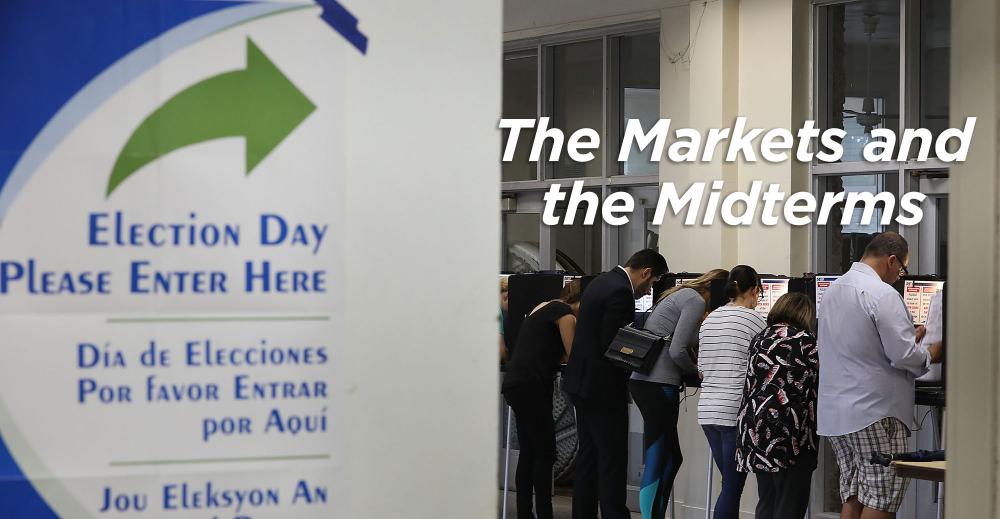1 10
1 10
A divided Congress means policy stasis and has historically tended to benefit equities, but we see potential disruptors: U.S.-China tensions, given bipartisan support for cracking down on China’s trade and intellectual property practices; and increasing partisan confrontation as the Democrats have vowed to use their oversight powers to investigate Trump’s business practices and a host of other issues. —Richard Turnill, global chief investment strategist for BlackRock
[Leah] Traub believes the most likely scenario is that the Democrats gain control of the House while the Republicans keep the Senate. In that case, she thinks further tax cuts are unlikely. “The economy is still doing well, so nothing is really needed on the policy front,” she says. Attention may turn more toward the probe of Russian interference in the 2016 U.S. presidential election, and Traub thinks further sanctions against Russia would be likely. —Lord Abbett Private Investment Management Company
A more confrontational Congress may limit President Trump in some areas—such as judicial appointments—but he would be able to block most efforts to roll back the actions his administration has taken so far. Meanwhile, Democrats would be unable to advance their own policy agenda against the president’s wishes, since his veto power would still allow him to quash major market-impactful legislation from a Democratic Congress in even the most extreme ‘blue wave’ outcomes. —UBS Wealth Management
We remain defensively positioned now with overweights on Health Care, Consumer Staples, and Utilities, we do not plan to move completely cyclical after midterm elections as the elections appear to be occurring near a late-cycle earnings growth-rate peak. —Pat Tschosik, U.S. sector strategist, Rob Anderson, investment research analyst, Ned Davis Research Group
We think the U.S. midterm elections on November 6 will likely be a bigger media event than a market event ... a divided Congress will be in no better position to pass legislation than they are today—but the market hasn’t been expecting an major legislation to be forthcoming. —James McDonald, chief investment strategist, Northern Trust Global Asset Allocation
Historically, the markets don’t really care which party is in control. Whether you’re a passionate conservative, devoted liberal, or something in between, the fact is that the markets aren’t as partisan as people. Talking heads can argue till the cows come home about which party is better for the markets, but I’m not going to get into that here. (It’s not like you need another political pundit in your life!) History shows that, while some years rise higher than others, the markets tend to rise after an election no matter which party is in power. —Jack Reutemann, Research Financial Strategies
The upcoming year (post midterms, pre-election) has historically been the best of the four-year cycle, in part because of presidents’ efforts to boost the economy with pro-growth policies ahead of the election in year four....This historical pattern is hard to ignore, while the economic backdrop is favorable and corporate fundamentals are quite healthy. —John Lynch, chief investment strategist, LPL Financial
Investors fear that a divided government—with a Democratic-controlled House of Congress in opposition to a Republican administration—could derail President Trump’s agenda and put an end to the historic bull market. But throughout history, markets have often performed better with a divided government. —OppenheimerFunds
A final possibility not currently on investor radars is that Republicans could try to squeeze in swansong legislation if the election results in a loss of control over one or more chambers. For example, they could pass a reconciliation bill with just a 51-vote majority that could include market-moving measures, such as tax cuts and a Medicaid growth cap. These measures could be structured to endure at least through 2021, when a change in White House control would be needed to reverse them. —Matt Miller, political economist, The Capital Group

